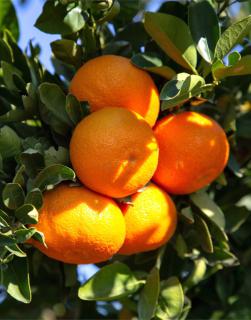

The clementine tree is an amazing citrus.
Clementine orange tree facts
Name – Citrus x clementina, Citrus clementina
Family – Rutaceae (Rue family)
Type – fruit tree
Height – 16 to 20 feet (5 to 6 m)
Exposure – full sun
Soil – rich enough
Foliage – evergreen – Flowering – spring – Harvest – autumn/winter
Care, pruning and watering are practices that increase tree growth and clementine fruit formation.

You may plant it in a sun-bathed spot, sheltered from wind, so that it may have the highest possible productivity.
Growing directly in the ground is only possible in areas where winter is mild.
Farther North, you should plant it in pots so that you may bring it indoors to a cool but non-freezing place during the cooler months.
For potted growing of clementines, refer to our page on potted orange trees because it is exactly the same thing.
It isn’t really a requirement to prune.
In Mediterranean-like and warmer climates, you can grow it and keep it outdoors in winter.
When outdoors, remember it can hold to temperatures as low as 17°F (-8°C).
What is best is to use horticultural fleece which will let it cope with these low freezing temperatures best.
If you are growing it in a pot, the best thing to do is to move it to a greenhouse or an unheated lean-in so as to protect it from freezing, while letting it feel the cool it needs over its winter dormancy.
A pest that will spread quickly across clementine trees is red spider mite.
<!–silent
–>
Common name – clementine tree
A beautiful tree of the Citrus family which also includes the orange tree and the lemon tree, clementine trees tend to be slightly more resistant to cooler temperatures and to various diseases.
A French missionary priest called Father Clément supported the development of this fruit in France at the beginning of the XXth century, and the fruit was named after him.
It is mainly grown in the Mediterranean area, but it does tolerate harsher climates, especially when well protected from wind and winter cold.
Light mulch in summer will retain moisture and reduce water needs.
Read also on citrus